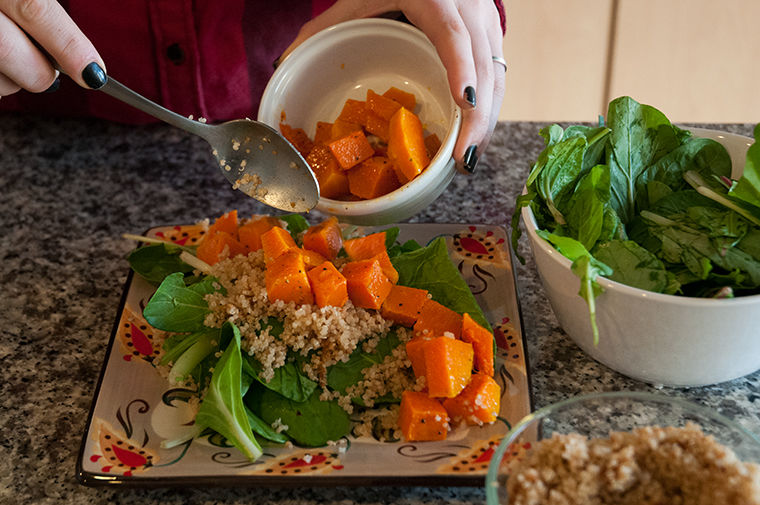You are what you eat: the health benefits of cooking
November 27, 2017
After moving away from home, junior theatre major Kendall Baklor started cooking for herself but said it is difficult to balance as a full-time college student, especially when it is easier to eat out.
“There is so much cheap fast food. It’s easy for us [students] to get,” Baklor said. “When we are tired or lazy and don’t want to do anything, it’s easier for us to pick that option.”
What students gain in convenience, they may lose in nutritional value, said Amanda Lemein, a registered dietitian at Forming Early Eating Decisions. Cooking meals at home instead of going out to eat is beneficial for all ages, but especially for college students, Lemain said.
“[College] is a time when you begin cementing your habits as an adult, including your health habits,” Lemein said. “Taking control of your health as a young adult in college is important because you’re setting yourself up for success later in life.”
Cooking your own meals allows control over what is put into your body, such as sodium, sugar and artificial flavoring, which can lead to a healthy lifestyle and ultimately a better academic performance, Lemein said.
Shelley Young, founder and CEO of The Chopping Block, a culinary school with locations across Chicago, advises college students to prepare food in advance that is easy to eat on the go.
“It doesn’t have to be fancy and it doesn’t have to be complicated, but you can cook a lot of food for several days all at once,” Young said. “It’s more economical, you plan ahead and you have the stuff on the go when you need it.”
Young suggests cooking a dish like quinoa, which is a grain high in protein, and mixing in mushrooms or sweet potatoes. It is a reliable food for college students because it can be eaten at any temperature, she noted.
“If you’re hungry, you crash,” Young said. “You want to be able to eat instead of going hungry. Some people tend to not eat and some people tend to eat stuff that’s not particularly healthy.”
Lemein said cooking for yourself in college is likely to reduce the risk of developing a number of chronic diseases, including heart disease and diabetes.
If students are unable to cook for themselves, Lemein said they should focus on choosing options that offer lean protein, whole grains and vegetables.
“When I cook myself dinner, I feel more productive and better about myself,” Baklor said. “When I go out and after I eat, I feel tired and gross. Cooking for myself, I’m actually taking care of myself.”








